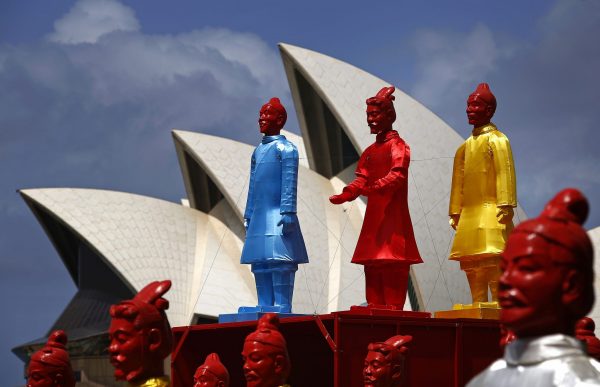Those who have left China come from a range of backgrounds, including unskilled workers, students, highly skilled professionals and wealthy investors.
The rise in the number of highly skilled and wealthy Chinese migrating overseas has been particularly significant in countries that had a history of restrictions on Chinese and other Asian migrants. Chinese nationals now dominate many of the skilled migrant and investor immigration pathways put in place by countries such as the United States, Canada and Australia. Since the abolition of racially discriminatory immigration policies in the 1960s and 1970s, these countries have opened themselves up to migration from Asia, resulting in a huge increase in Chinese migrants.
In Australia, census data show that the mainland-born Chinese population surged from 25,883 in 1981 to 526,000 in 2016. This represents a twentyfold increase in 35 years. The China-born are now the country’s third largest migrant group — behind those of the United Kingdom and New Zealand — and account for 2.2 per cent of the Australian population.
In Sydney, Australia’s most populous city, the Chinese diaspora already represent the largest migrant group. In some suburbs — such as Hurstville, Rhodes and Burwood — at least a quarter of residents were born in mainland China.
China’s growing global strength and associated assertiveness, coupled with its economic importance to Australia and many other countries, has spawned an intensifying debate about the future of Australia’s relationship with China. And the Chinese diaspora has inevitably been drawn into these debates.
What is absent from the debate is reflection on how the contributions of Australia’s Chinese diaspora might be leveraged to enhance the relationship in ways that serve Australian interests.
Instead, the impact of Chinese presence in Australia tends to be understood within a narrow and nationalistic framework, in which the Chinese diaspora is increasingly being treated as a threatening and not-to-be-trusted minority.
Chinese investors are blamed for the exorbitant rise in housing prices in Sydney and there is confusion in the Australian public about the difference between domestic Australian-Chinese investors and foreign Chinese investors. There is racially tinged anxiety about selective schools becoming dominated by Chinese and other Asian students.
In the past year, media reports about the alleged meddling of the Chinese Communist Party in Australia’s domestic affairs have heightened public distrust of the Chinese diaspora. These reports have been fuelled by suspicion regarding local Chinese business donations to political parties and universities as well as the belief that Chinese international students are attempting to curb free speech in university lectures.
Sophisticated debate on these matters is essential if Australia is to maintain a healthy relationship with China. That is not helped by fixation on the threat posed by China, and by extension the Chinese diaspora. But it would be wrong to treat the Chinese in Australia as an homogenous group, bent entirely on serving the interests of their country of origin.
Among other elements, the voices of ordinary Chinese-Australians themselves need to be heard. It would also help if debate moved beyond crude notions of antagonistic national interests towards more constructive explorations of transnational collaboration for mutual benefit.
The mediating role of the Chinese diaspora in advancing business and cultural links between Australia and China is one dimension of this perspective. Chinese migrants — as owners of or key decision makers in Australian companies — play a positive role in assisting trade and investment relations with China. Through their ‘bicultural’ social and cultural capital (including language skills, knowledge of how Chinese businesses operate and access to co-ethnic transnational networks) they facilitate the entry of Australian companies into the Chinese market.
Something similar is taking place in scientific research. Chinese researchers working at Australian research institutions have played a critical role in driving Australia’s research collaboration with China.
Data show Australian researchers of Chinese origin are disproportionately engaged in such collaborations. Measured by co-authorship of refereed journal articles, they account for 66 per cent of publications involving co-authors based in Australia and China.
Australia utilises diasporic Chinese researchers for research collaboration and knowledge exchange with China. It is through them that transnational knowledge networks and ‘brain circulation’ are nurtured. The same is the case for other Western countries with a large Chinese diasporic research workforce, such as the United States.
Yet there are few science diplomacy strategies in place to leverage this capacity in both countries’ mutual interests. One survey showed that the overwhelming majority of diasporic Chinese researchers in Australia would be prepared to work on strengthening Australian research collaborations with their home country if given the opportunity to do so.
Countries like Australia would do well to invest in new diaspora engagement strategies. This would ensure that Australia’s and others’ relationships with China remain on an even footing in a world in which, in the not too distant future, China may be the leading global power.
Ien Ang is Distinguished Professor of Cultural Studies at the Institute for Culture and Society at Western Sydney University.
This article appeared in the most recent edition of East Asia Forum Quarterly, ‘China’s influence’.

